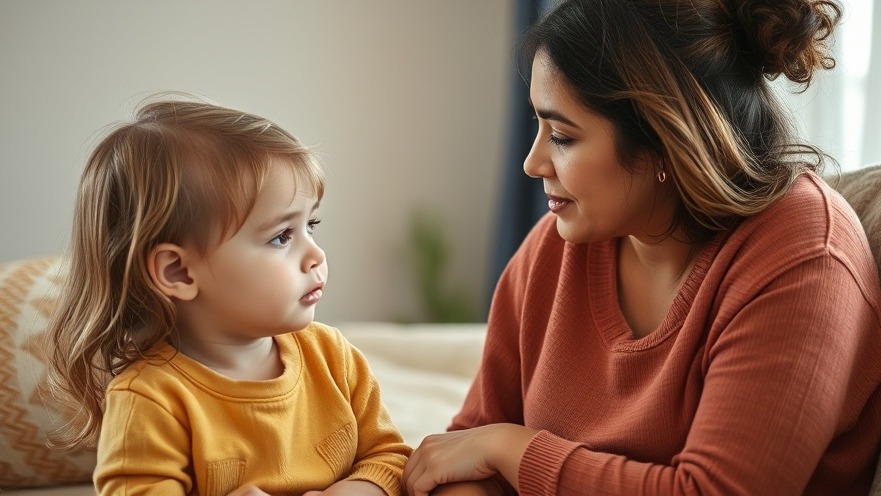
Understanding Body Image: An Essential Conversation
In today’s complex world, discussions about body image are no longer just surface-level dialogues; they are crucial conversations that can shape children's perceptions of self-worth and beauty standards. The impact of unkind words about body image can be devastating, with research suggesting that children as young as three are susceptible to anti-fat biases. Thus, when a child shares, "Mummy, Charlie called me fat today," it becomes a pivotal moment for parents to engage thoughtfully.
Empowering Responses to Hurtful Comments
Responding effectively is essential. Instead of reassuring, "You’re not fat, darling, you’re beautiful!" which implies that being fat is negative, parents should reflect on the child’s feelings. An empathetic response such as, "That sounds so hurtful. What was that like for you?" invites the child to express their emotions without reinforcing stigma. Encouraging self-acceptance with reminders that all bodies are good bodies fosters emotional resilience and nurtures a healthy self-image.
Lessons About Human Interaction and Compassion
When children encounter body shaming, it presents an opportunity for parents to instill crucial values such as empathy and understanding of personal experiences. If the child is the one doing the shaming, it opens the door for a thoughtful discussion about the underlying thoughts and feelings. This is not only about correcting behavior but also about understanding that these attitudes can stem from the child's environment, including parental influence.
The Role of Cultural Influences on Self-Perception
We live in a society that often prioritizes thinness and perfection, making it vital for parents to counteract negative body image messages. Surrounding children with affirmations, resources, and communities that celebrate body diversity can significantly shift perceptions. Exploring platforms like Health at Every Size can offer alternative viewpoints that advocate for self-acceptance and inclusivity.
Why Body Acceptance is Key for Mental Wellness
Body acceptance serves as a cornerstone for mental health support in youth. In a world where beauty standards fluctuate, teaching children to value their innate worth is indispensable. If they learn to disentangle their self-worth from societal expectations, they are more likely to prevent mental health issues related to body image, such as anxiety or depression. Conversations about body diversity promote not only better body image but also improve overall psychological well-being, fostering healthier relationships and self-acceptance.
Fostering a Positive Home Environment
Creating a supportive atmosphere where discussions about body image are normalized can empower children to grow into emotionally intelligent adults. Parents should continuously check in with their own beliefs about bodies and beauty. Engaging with various perspectives helps dismantle biases and cultivates a culture of acceptance within the family.
Practicing Mindfulness: A Tool for Body Positivity
Encouraging mindfulness practices can further aid children in cultivating body positivity. Techniques such as mindfulness meditation or simply nurturing self-compassion can help children develop awareness around their feelings and responses towards body image. By incorporating mindfulness into daily routines, families can promote a holistic approach to wellness that embraces both mental and physical health.
In conclusion, as we navigate conversations regarding body image, it’s paramount to focus on emotional intelligence and self-acceptance. Consider fostering supportive dialogues that emphasize the value of diverse body types and teach children to treat themselves and others with kindness. Join communities or resources that echo these values, as they can be invaluable on this journey toward improved body image and healthy self-concept.
Take a moment to reflect on your family’s approach to body image conversations. Are you reinforcing positive attitudes about all body types? By actively engaging in these discussions, you not only nurture your child's well-being but also contribute to a more accepting society.
 Add Element
Add Element  Add Row
Add Row 



Write A Comment